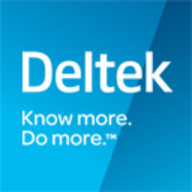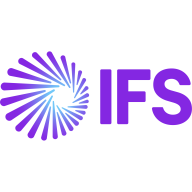

Find out what your peers are saying about SAP, Microsoft, Oracle and others in ERP.

IFS is the world’s leading provider of Industrial AI and enterprise software for hardcore businesses that make, service, and power our planet. Our technology enables businesses which manufacture goods, maintain complex assets, and manage service-focused operations to unlock the transformative power of Industrial AI™ to enhance productivity, efficiency, and sustainability. Industrial AI is IFS.ai.
IFS Cloud is a fully composable AI-powered platform, designed for ultimate flexibility and adaptability to our customers’ specific requirements and business evolution. It spans the needs of Enterprise Resource Planning (ERP), Enterprise Asset Management (EAM), Supply Chain Management (SCM), Information Technology Service Management (ITSM), and Field Service Management (FSM). IFS technology leverages AI, machine learning, real-time data and analytics to empower our customers to make informed strategic decisions and excel at their Moment of Service™.
We monitor all ERP reviews to prevent fraudulent reviews and keep review quality high. We do not post reviews by company employees or direct competitors. We validate each review for authenticity via cross-reference with LinkedIn, and personal follow-up with the reviewer when necessary.